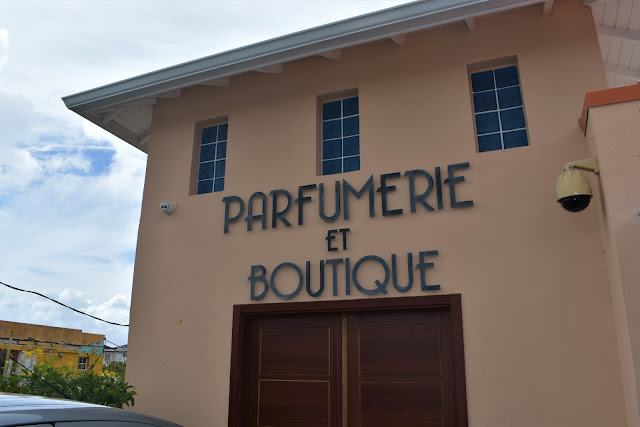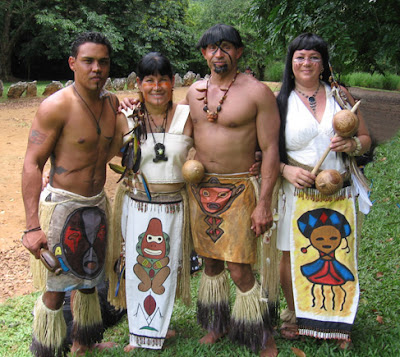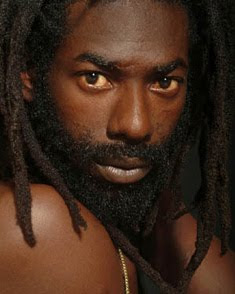Cape Verdean Summer Music
It's a steamy, hazy, August day in Chicago and for me nothing captures the listlessness of a hot summer day better than Cape Verdean music. The melodies skip playfully but the tone still manages to sound languid. I have quite a few favorites, including Sara Tavares and Lura. I saw Lura a few weeks ago, swirling around sensuously and raising the roof (figuratively) of Millennium Park with her dynamic vocals. Most of the audience was mesmerized, even though they clearly had no idea where or what, Cape Verde was.
Save for the looming presence of Cesaria Evora and her powerful interpretations of classic Cape Verdean mornas, the music of this isolated archipelago off the coast of Senegal, West Africa is mostly unknown by the West. Colonized by the Portuguese and largely ignored for most of its 500 years of occupation, the 10 small islands are prone to devastating drought as well as constant emigration. Since the country’s independence in 1975, there are more Cape Verdeans living abroad than in Cape Verde. One of those displaced Cape Verdeans is Lura, a charismatic young singer living in Lisbon, her music uncovers the sensual and complex sounds of Cape Verde for the rest of the world.
Lura's childhood was steeped in the percussive, ritual-based sounds of batuco, finacon and funana, rather than the Portuguese-influenced morna. Batuco is the percussion and funana are the rhythms that were formed by hand-clapping, call and response and the beating of cloth called tchabeta, held between the legs. Finacon as well as funana will sometimes feature accordions or scrapers. The music was improvised during rituals and celebrations but was outlawed by the Catholic Church because it was considered too erotic. After independence, pop bands rushed to incorporate these traditional sounds into contemporary tunes for a totally new sound that resembled the jerky rhythms of Caribbean zouk music. Lura's music, however, retains a distinctive sound all her own.
Listen as her throaty yet breezy vocals pour over "Oh Naia," an accordion-driven funana about a border guard she accuses of overcharging her because she failed to bring her anything back from her Lisbon trip. Watch for the traditional Cape Verdean dance moves toward the end.
Save for the looming presence of Cesaria Evora and her powerful interpretations of classic Cape Verdean mornas, the music of this isolated archipelago off the coast of Senegal, West Africa is mostly unknown by the West. Colonized by the Portuguese and largely ignored for most of its 500 years of occupation, the 10 small islands are prone to devastating drought as well as constant emigration. Since the country’s independence in 1975, there are more Cape Verdeans living abroad than in Cape Verde. One of those displaced Cape Verdeans is Lura, a charismatic young singer living in Lisbon, her music uncovers the sensual and complex sounds of Cape Verde for the rest of the world.
Lura's childhood was steeped in the percussive, ritual-based sounds of batuco, finacon and funana, rather than the Portuguese-influenced morna. Batuco is the percussion and funana are the rhythms that were formed by hand-clapping, call and response and the beating of cloth called tchabeta, held between the legs. Finacon as well as funana will sometimes feature accordions or scrapers. The music was improvised during rituals and celebrations but was outlawed by the Catholic Church because it was considered too erotic. After independence, pop bands rushed to incorporate these traditional sounds into contemporary tunes for a totally new sound that resembled the jerky rhythms of Caribbean zouk music. Lura's music, however, retains a distinctive sound all her own.
Listen as her throaty yet breezy vocals pour over "Oh Naia," an accordion-driven funana about a border guard she accuses of overcharging her because she failed to bring her anything back from her Lisbon trip. Watch for the traditional Cape Verdean dance moves toward the end.



Comments
Thanks:)
Tiffany, I hope you add Lura to your music collection.
Catherine, I'm so glad I could help. Cesaria Evora is unforgettable but Lura does another take on Cape Verdean music style.
Marina, I'm always excited to introduce you to new music.
Greetings from London.
Jean-Luc, so happy that you enjoyed it!